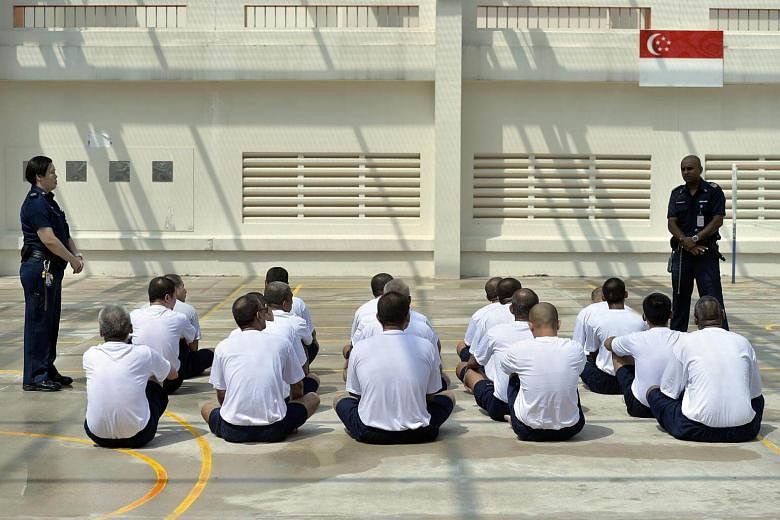The authorities are stepping up efforts to tackle the problem of inter-generational offending, when children - like their parents or grandparents before them - also get into trouble with the law.
There is no local data on the extent of the problem yet, said Ms Jessie Wong, assistant director of family policy at the Singapore Prison Service. But it is "not uncommon" to see offenders with other family members with criminal records, said social workers.
"You may have a father in jail and the son is also in jail, and this is especially so for drug offences. The parents may take drugs at home and the children learn (from seeing their example)," said Ms Wong. The lack of proper guidance as well as money woes and other stresses when a parent is jailed are other reasons why the child may mix with the wrong company and end up committing a crime, she added.
Mr Amrin Amin, Parliamentary Secretary of the Home Affairs Ministry, announced in May that the authorities want to focus more on helping inmates' children and reduce inter-generational offending.
He said a host of overseas research has shown that children are adversely affected by their parents' incarceration and are more likely to follow in their footsteps as a result.
Dr Sytske Besemer, of the University of California, Berkeley, who is researching on inter-generational continuity of criminal behaviour, told The Sunday Times the odds of offending for children with criminal parents are on average 2.5 times higher than for those with parents who are not offenders.
To do more for children of inmates, the Yellow Ribbon Fund, a charitable fund that helps offenders and their families, has a new initiative under its Yellow Brick Road programme, started in 2014 to help inmates families. For example, social workers link families up with financial or other forms of aid they need, such as finding a job. It also organises activities for inmates to bond with their children.
In July, the programme started offering tuition and enrichment workshops, such as in drama and music, for the children.
Separately, the Yellow Ribbon Community Project, which started in 2010, has grassroots volunteers visiting families of newly incarcerated inmates to see what help they need and link them up to help agencies. Since July, volunteers have also been trained to identify inmates' children who may need more help, such as in counselling or in their studies, and link agencies up to support these children.
A former convict who wanted to be known only as Ms Tay, 32, has two children aged 10 and 12 under the Yellow Brick Road tuition scheme. Since it started about a month ago, a tutor has been going to her home twice a week to coach her children.
The twice-divorced mother of four children, who was jailed for 11/2 years for drug consumption, said: "My daughter can concentrate better with individual tuition and it's free so I don't have to worry about the fees."
Theresa Tan
Correction Note: An earlier version of this story said that the Yellow Ribbon Community Project was initiated by the Yellow Ribbon Fund. This is incorrect. We are sorry for the error.

